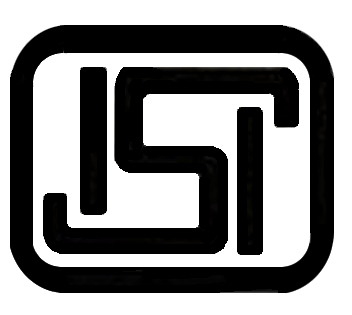Introduction of India BIS certification product regulatory body
The certification body for Indian products is the BIS: (Bureau of Indian Standards), which is responsible for the development of Indian Standards regulations and product certification.
BIS-ISI certification in India
ISI certification is mandatory certification in India, local requirement:
1. Foreign producers shall have a liaison office or branch office in India with the permission of the reserve bank of India and such liaison office or branch shall comply with all laws, regulations and rules of the BIS;
2. India has a memorandum with the government on the application of BIS decrees, statutes and rules, as well as penalties;
3. The manufacturer appoints an authorized agent in India,on behalf of the producer, declares and is responsible for the compliance with the BIS1986 statutes, statutes and rules, in accordance with the terms and conditions of the agreements signed between the BIS and foreign producers.
ISI certification mark

Compulsory certification products
|
1. Textile |
8. Agricultural products, food, beverages and tobacco |
|
2. Chemicals and pesticides |
9.Leather |
|
3.Cement and concrete |
10. Wood products |
|
4. Metal products and imitation metal products |
11.Paper and pulp products |
|
5. Mechanical equipment |
12.The test equipment |
|
6. Electronic and optical equipment |
13.Building materials |
|
7. Auto parts |
14.Pumping, irrigation, drainage and sewage installations |
The type of certification
The BIS product certification shall be subject to the initial inspection and evaluation of the factory quality management system, sample testing, certification after the confirmation of the quality, and supervision by the factory quality management system after the certification. Testing of samples taken from factories and markets to determine if the products are consistent with Indian standards.
Certification process
1. Application. Foreign manufacturers seeking BIS certification generally use a dedicated application form and prepare documentation to apply to the BIS headquarters in new Delhi.
2. Record. The BIS reviews application documents and information submitted by applicants and, if completed, records the application. The applicant shall pay the corresponding processing fee.
3. Initial factory inspection. The BIS will arrange no more than two auditors to the factory for inspection. The applicant should be in charge of the cost of travel, visa and inspection for the inspection by the official delegation to the factory.
4. Issue certificates.If the results of the initial inspection and testing are qualified, the applicant agrees to carry out the BIS approved test scheme and pay the BIS identification fee.
The certificate is valid for one year. After the certificate is granted, the holder shall pay the identification fee and annual certificate fee every year.
5. Product Quality Supervision after receipt of certificates.The BIS supervises the quality of its certified products through routine supervision of witnesses and surprise inspection and testing of samples in factories and markets. The certificate may be renewed if the sample drawn from the factory or market meets the requirements through the factory's inspection and independent testing results on a regular basis. The holder applies for renewal to the BIS by submitting the specified form, and the certificate renewal fee is Rs500. The holder should also in charge of the fee for sample testing.
BIS registration certification in India (electronic and information equipment)
On September 7, 2012, the ministry of communications and information technology of India issued the "electronic and information technology products (compulsory registration requirements) act, 2012" in the official government bulletin. The decree will come into effect six months after the release of the communique, which will come into effect on March 7, 2013, when products that do not meet the requirements will not be able to enter the Indian market and products under the control must be registered with the BIS before they can be sold.
The current category of products covered include video game consoles, laptops, desktop computers, plasma LED TVS with a screen size of 32 inches or more, compact disc players with speakers at 200W or more, microwave ovens, printers, graphics machines, scanners, wireless keyboards, set-top boxes, etc. The first list of 15 electronic and information technology products requiring mandatory inspection and the applicable testing standards are shown in the table below:
1.Video game machine (video);
2. Portable computer/laptop computer/tablet computer;
3. Plasma /LCD/LED TV with a screen size of 32 inches or above;
4. Optical disc player with built-in speaker with input power of 200W or above;
5. Microwave oven;
6. Display with screen size above 32 inches and video monitor;
7. Printer and plotter;
8.Scanner;
9.Wireless keyboard;
10.Telephone answering machine;
11. Loudspeaker with input power of 2000W and above;
12. Electronic music system with an input power of 200W and above;
13. Electronic clock with main power supply;
14. Set-top box;
15. Automatic data processing machine.

Add.:Room703、705/7F, Development Building, Tian An Hi-Teck Ecological Park, No.555 North Road Panyu Avenue, Panyu District, Guangzhou City, 511400, China
Tel.:020 - 39211670 Fax:020 - 39211640 E-mail:info@certitek.cn

